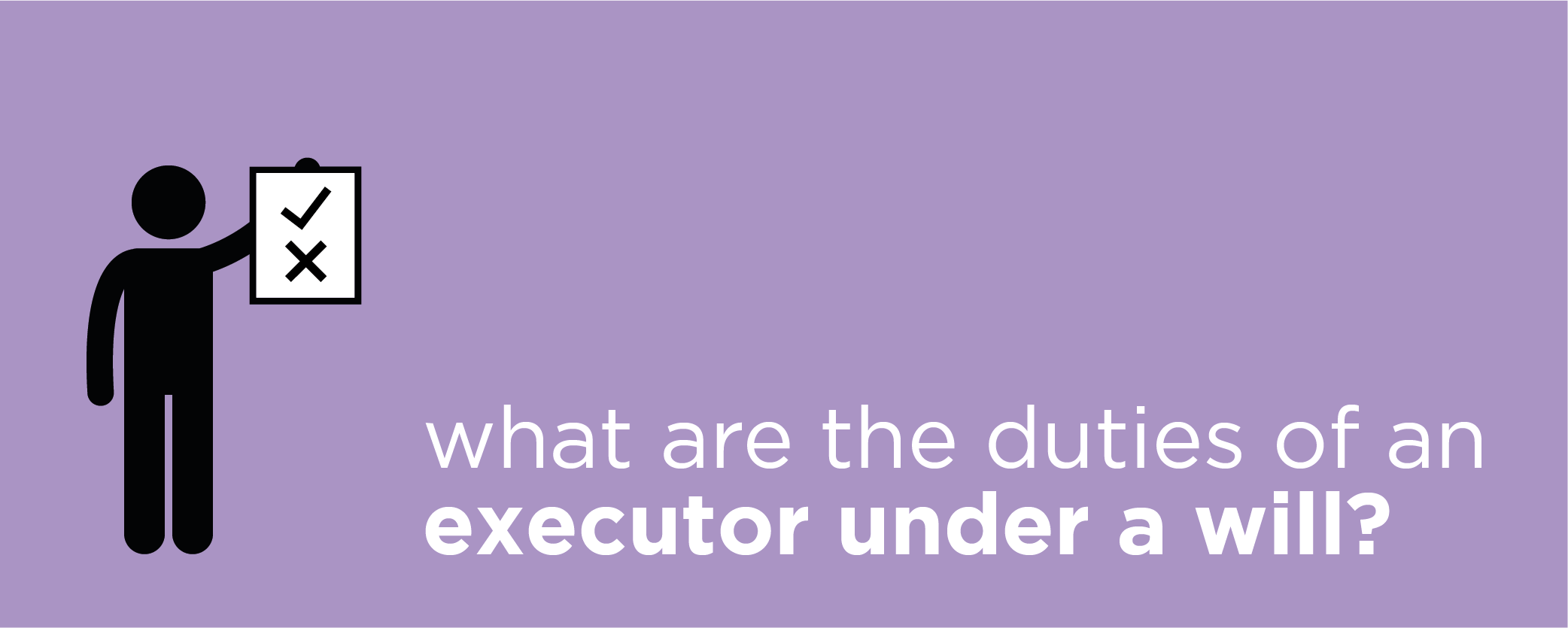- Basildon 01268244144
- Chelmsford 01245453800
- Colchester 01206217300
- London 020 4586 1280

Executors are responsible for dealing with the estate of someone who has died. They are the people that have been legally appointed by a person in their will to administer their estate.
The role of an executor can be demanding, so when you make a will, it is important that the person you appoint is someone you can trust to carry out the role.
Who can be an executor of a will?
Anyone over the age of 18 can act as an executor, so long as they have mental capacity.
Most people choose their spouse, family, friends or a professional - such as a lawyer or accountant - to act as their executor. You can appoint up to four executors if you so wish. People often choose to appoint more than one so that the responsibilities can be shared amongst them.
A beneficiary of your will can also act as your executor, but an executor cannot witness the signing of your will if they are also a beneficiary.
What are the main duties of an executor?
1) Arranging the deceased’s funeral
2) Valuing the deceased’s estate
3) Working out whether inheritance tax needs to be paid and reporting it to HMRC
4) Identifying and dealing with any valid claims against the estate
5) Applying for a grant of probate
6) Searching for unclaimed or missing assets
7) Paying any liabilities
8) Reporting to HMRC regarding income tax
9) Reporting to HMRC regarding capital gains tax
10) Distributing the deceased’s estate in accordance with their will
11) Preparing estate accounts to show the money that has been paid in and out of the estate.
Are there liabilities on executors?
An executor could be held financially liable if the deceased’s estate suffered a loss resulting from a breach of the executor’s duties. This could be in relation to the following:
1) Failure to distribute funds to a person who has a valid claim against the estate
2) Failure to correctly work out and report any inheritance tax, income tax and capital gains tax due
3) Failure to settle any liabilities of the estate
4) Failure to distribute funds to beneficiaries listed under the will.
What is the difference between an executor and a trustee appointed in a will?
A trustee is a person appointed in a will who acts when a trust has been made. The trustee is responsible for dealing with any assets held within the trust.
The executor and trustee named in a will are usually the same people, but this does not have to be the case.
If you would like help with your role as an executor or if you haven’t already made a will and would like to do so, please do not hesitate to contact one of our specialists.
I work in our Colchester office and can be contacted on 01206 217609 or leah.woodlee@birkettlong.co.uk



Comments